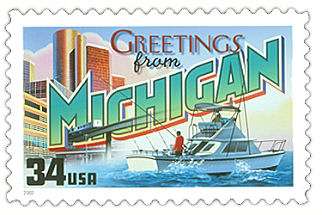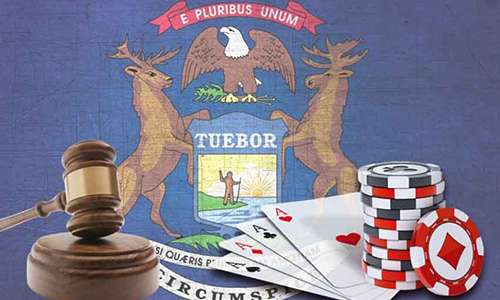Inside Michigan Online Poker Bill SB 889
The recent introduction of and online-poker regulatory bill in the Michigan Legislature may have surprised many casual industry observers and poker players, though the state has long been part of a group of US states where legalizing some form off intrastate online poker has always been a reasonable possibility.
 However, the actual introduction of Senate Bill 889, along with a reasonably favorable political environment in the state, now places Michigan among the most likely states for near-future regulation — say, within the next years — of the online game. Still, not much has been written to date about the specifics of the new Michigan measure, so we’ll catch up with that here.
However, the actual introduction of Senate Bill 889, along with a reasonably favorable political environment in the state, now places Michigan among the most likely states for near-future regulation — say, within the next years — of the online game. Still, not much has been written to date about the specifics of the new Michigan measure, so we’ll catch up with that here.
Staffers for SB 889’s primary Senate sponsor, Mike Kowall, have recently released a bill analysis detailing its primary elements. Per that update, SB 889, titled the “Lawful Internet Gaming Act, would do the following:
- Allow internet wagering to the extent that it was carried out in accordance with the proposed Act.
- Create the Division of Internet Gaming in the Michigan Gaming Control Board, with specified powers to execute the Act.
- Allow the Division to issue applicants an internet gaming license if they met certain criteria, and establish the process for an applicant to acquire an internet gaming license.
- Prescribe a $100,000 application fee and a $5.0 million license fee for an internet gaming license, and provide that a license fee would be an advance payment of internet wagering taxes.
- Allow an internet gaming license to be issued only to a casino licensee or, under certain conditions, to a Michigan Indian tribe that operates a gaming facility.
- Limit the number of internet gaming licenses that could be issued to eight.
- Allow internet gaming licensees to offer wagering on internet games.
- Allow the Division to certify internet gaming vendors to provide goods, software, or services to internet gaming licensees; establish the process for an applicant to become certified as a vendor; and require an application fee of up to $100,000.
- Provide that a license or certification would be valid for five years and could be renewed for additional five-year periods.
- Prescribe misdemeanor penalties for violations associated with the application process for an internet gaming license or internet gaming vendor certification.
- Impose a tax of 10% on the gross gaming revenue received by an internet gaming licensee from internet games authorized under the Act.
- Require an internet gaming licensee to have adequate gaming participant verification measures, including mechanisms to detect and prevent fraud, money laundering, and collusion.
- Require the Division to develop responsible gaming measures, including a statewide responsible gaming database identifying individuals who were prohibited from establishing an internet wagering account or participating in internet gaming.
- Allow a wager to be accepted from an individual not physically present in the State if certain conditions were met.
- Create the “Internet Gaming Fund” and require fees and taxes to be deposited into the Fund.
- Require money in the Fund to be spent, on appropriation, for purposes specified by the Legislature.
The proposed limit of eight online licenses has already been described by State Sen. Kowall as entirely arbitrary at this point. Michigan, as with many other states, includes both tribal and non-tribal gaming, though the state is less likely to suffer from the sort of contentious political in-fighting, driven largely by a subset of tribal interests, that has derailed similar legislation in California for nearly a decade.
The five-year licensing term, $100,000 application fee, and initial $5 million license fee (to be applied against taxes owed on gaming revenue) guarantee that only the largest industry players in the state are likely to take the plunge.
Michigan’s legislators have less solid answers to work with when looking at one of the most important issues connected with SB 899, that being its fiscal impact. The recent bill analysis for SB 899 concludes with a “Fiscal Impact” section in which its author cedes that, “At this time, it is difficult to accurately estimate the impact of internet gaming revenue on State revenue.”
The authoring staffer also wonders openly about the possible of online gambling partially cannibalizing other Michigan gambling revenue streams, despite the experience of other jurisdictions offering analyses and research showing that online gambling largely opens up a new and separate source of revenue. Nonetheless, Michigan legislators are unlikely to repeat the blue-sky gaming projections that preceded New Jersey’s legalization of online gambling in 2013.


















COMMENTS